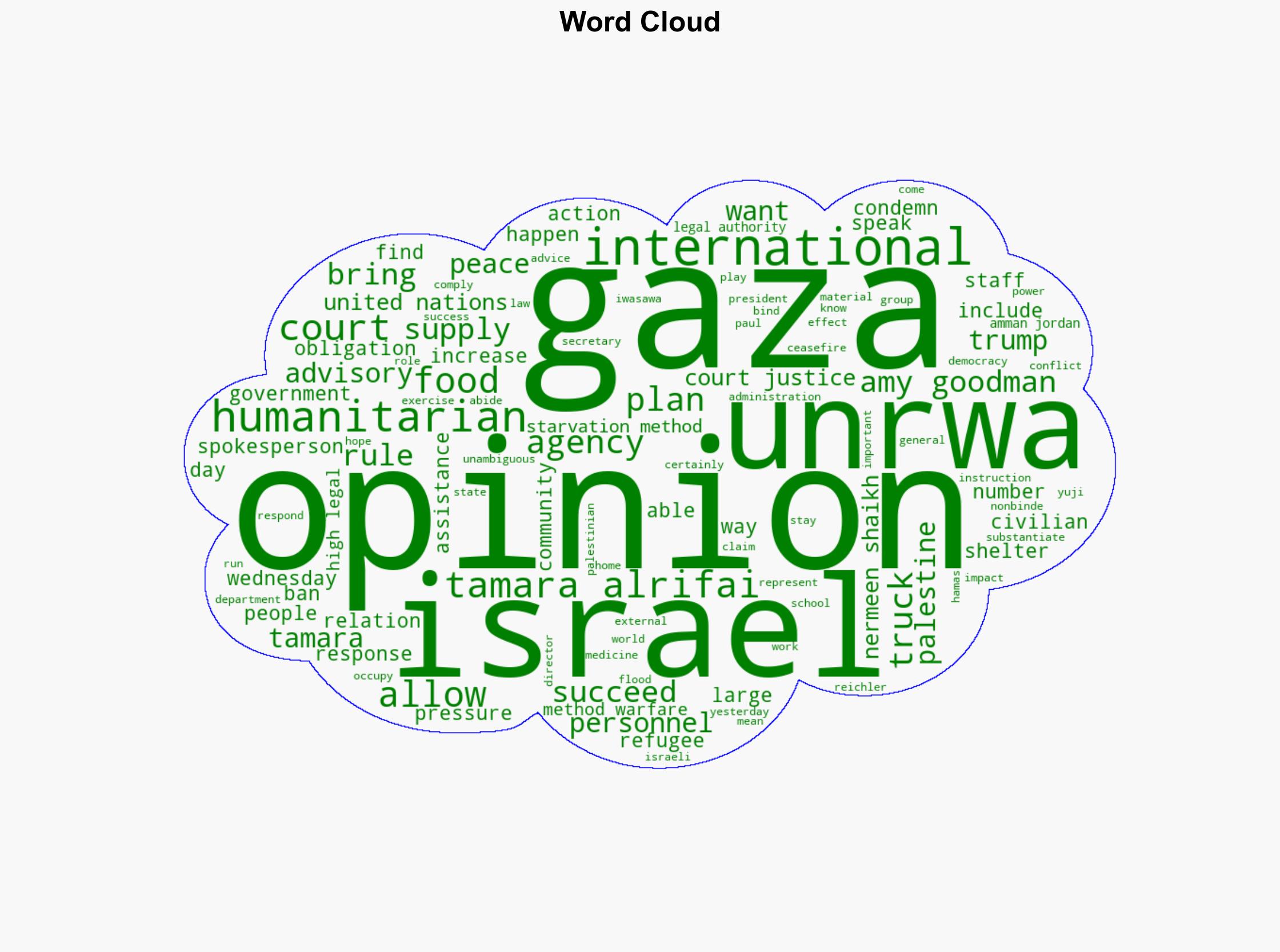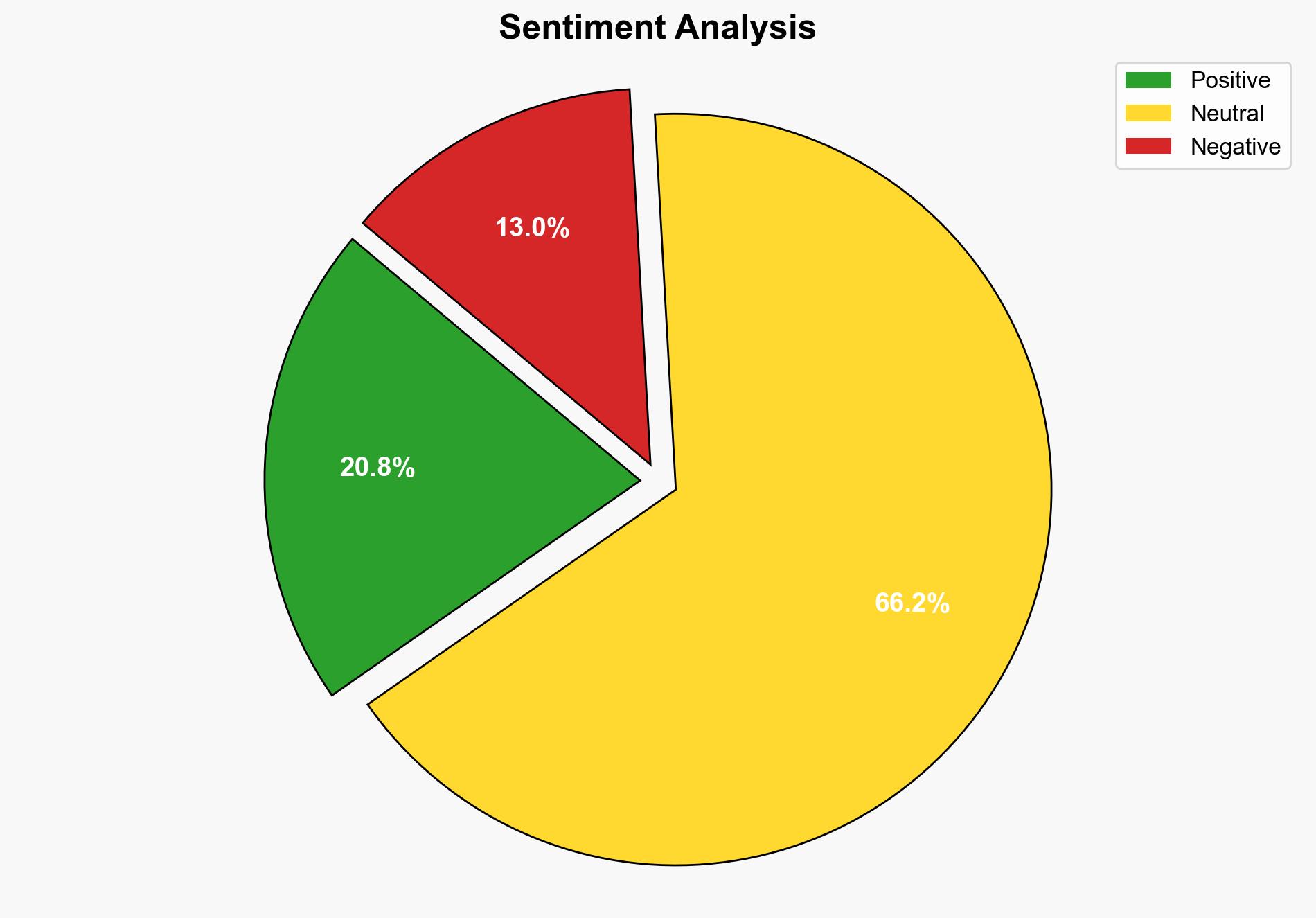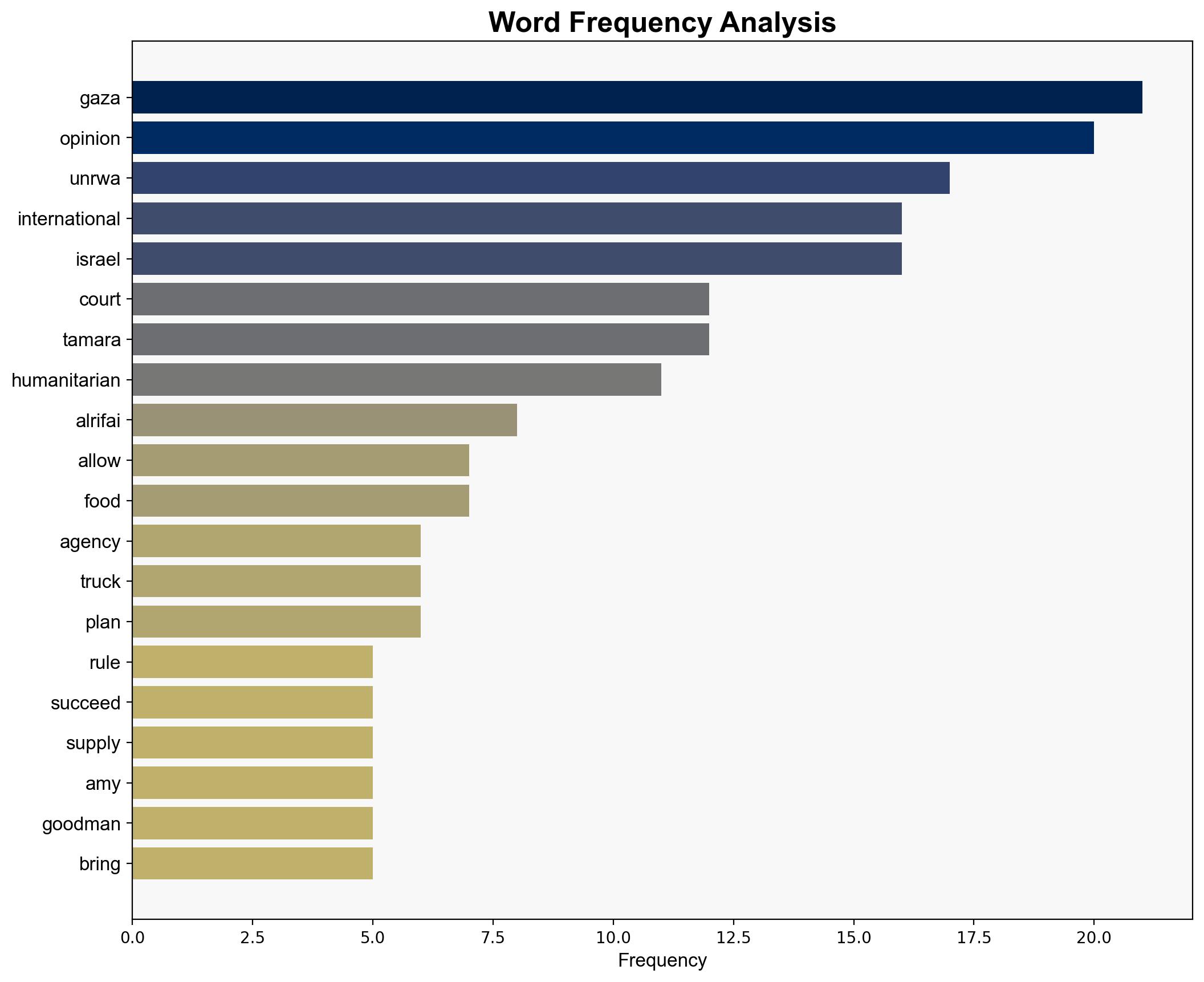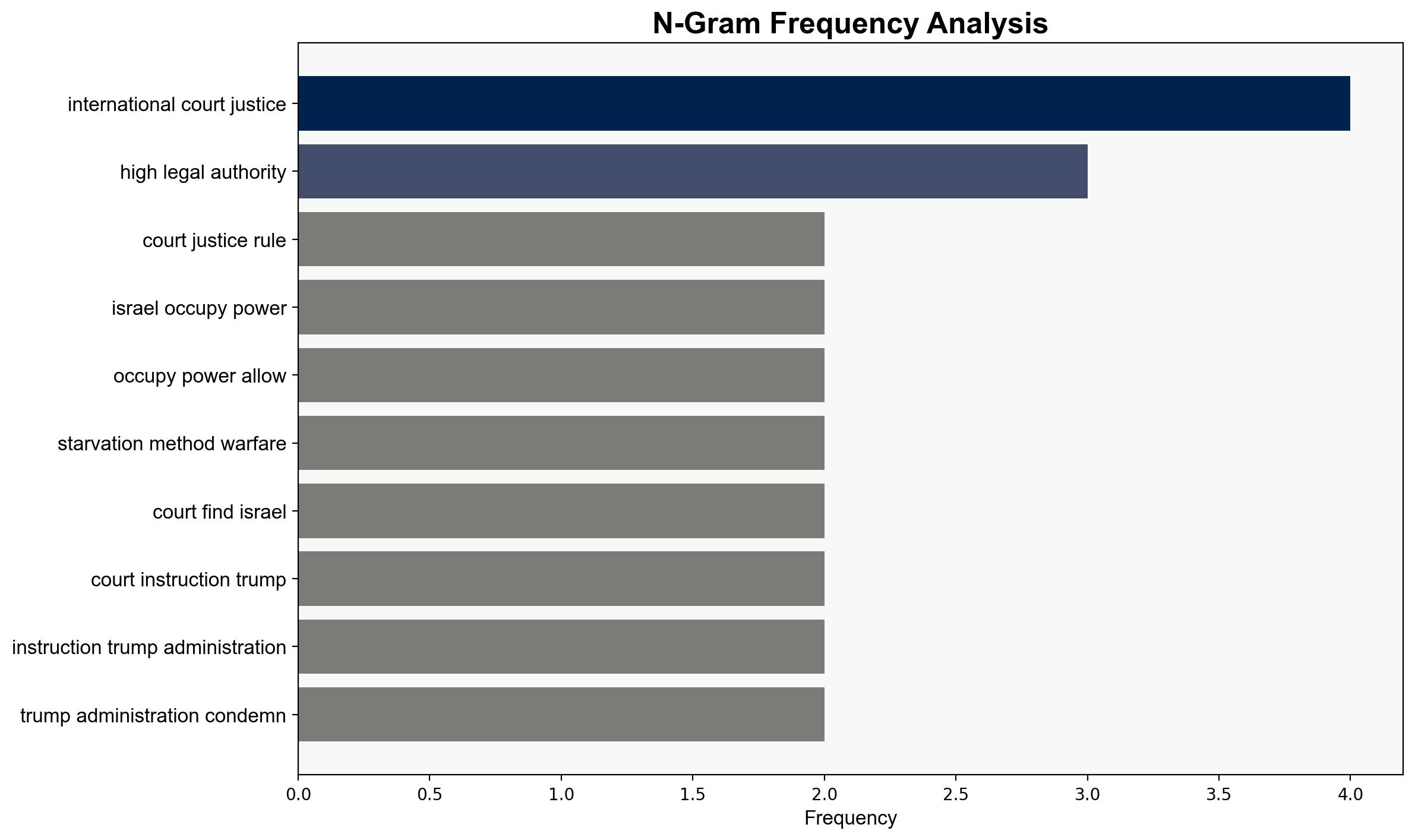International Court of Justice As Occupying Power Israel Must Allow UN Aid into Gaza – Democracy Now!
Published on: 2025-10-23
Intelligence Report: International Court of Justice As Occupying Power Israel Must Allow UN Aid into Gaza – Democracy Now!
1. BLUF (Bottom Line Up Front)
The International Court of Justice (ICJ) has issued an advisory opinion that Israel, as an occupying power, must allow UN humanitarian aid into Gaza. The most supported hypothesis is that Israel will continue to resist compliance with the ICJ’s opinion, citing political and security concerns. Confidence level: Moderate. Recommended action is to increase diplomatic pressure on Israel while preparing contingency plans for humanitarian aid delivery through alternative channels.
2. Competing Hypotheses
1. **Hypothesis A**: Israel will comply with the ICJ’s advisory opinion and allow unrestricted UN aid into Gaza, leading to improved humanitarian conditions.
– **Supporting Evidence**: The ICJ’s opinion is a high legal authority, and international pressure may compel compliance.
– **Contradictory Evidence**: Israel has historically resisted similar international pressures and denounced the ruling.
2. **Hypothesis B**: Israel will continue to resist the ICJ’s advisory opinion, maintaining restrictions on UN aid into Gaza.
– **Supporting Evidence**: Israel’s immediate denunciation of the ruling and historical precedence of prioritizing security concerns over international opinions.
– **Contradictory Evidence**: Increased international pressure could eventually lead to partial compliance.
3. Key Assumptions and Red Flags
– **Assumptions**: It is assumed that international pressure will have a significant impact on Israel’s policy decisions. Another assumption is that the ICJ’s opinion will influence global perceptions and actions.
– **Red Flags**: Israel’s outright rejection of the ICJ’s opinion and the Trump administration’s condemnation suggest a strong political stance against compliance. The non-binding nature of the ICJ’s opinion limits its immediate enforceability.
– **Blind Spots**: Potential internal Israeli political dynamics and public opinion are not fully considered, which could influence decision-making.
4. Implications and Strategic Risks
– **Geopolitical Risks**: Continued non-compliance by Israel could escalate tensions with the international community, potentially leading to diplomatic isolation or sanctions.
– **Humanitarian Risks**: Prolonged restrictions on aid could exacerbate humanitarian crises in Gaza, increasing regional instability.
– **Security Risks**: Increased tensions could lead to escalations in conflict, impacting regional security dynamics.
5. Recommendations and Outlook
- Engage in diplomatic efforts to increase pressure on Israel for compliance, leveraging international organizations and allies.
- Develop contingency plans for alternative aid delivery mechanisms to Gaza, possibly through neighboring countries.
- Monitor Israeli domestic politics for shifts that could influence policy changes.
- Scenario Projections:
– **Best Case**: Israel complies, leading to improved humanitarian conditions and reduced tensions.
– **Worst Case**: Continued non-compliance leads to increased conflict and humanitarian crises.
– **Most Likely**: Partial compliance with continued restrictions, requiring ongoing international negotiation.
6. Key Individuals and Entities
– Yuji Iwasawa, President of the International Court of Justice
– Tamara Alrifai, UNRWA spokesperson
– Paul Reichler, attorney representing Palestine at the ICJ
– Antonio Guterres, UN Secretary-General
7. Thematic Tags
national security threats, humanitarian aid, international law, Middle East conflict





